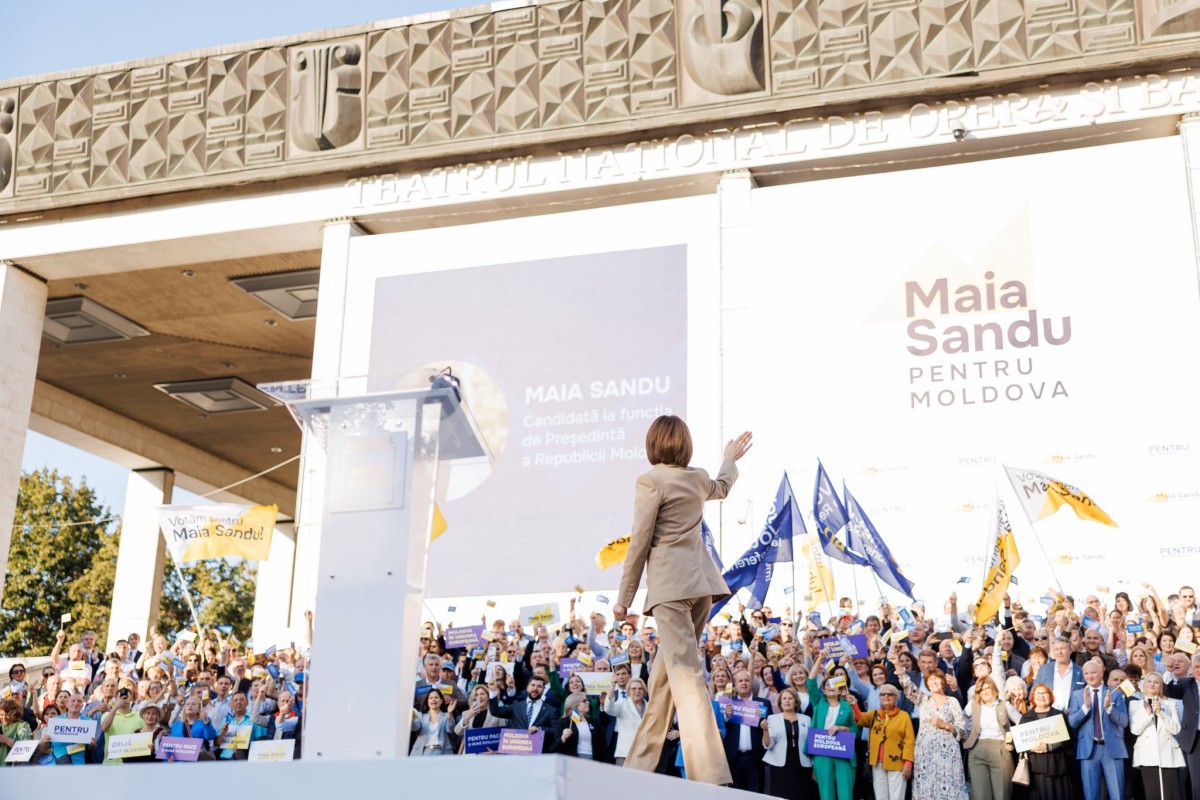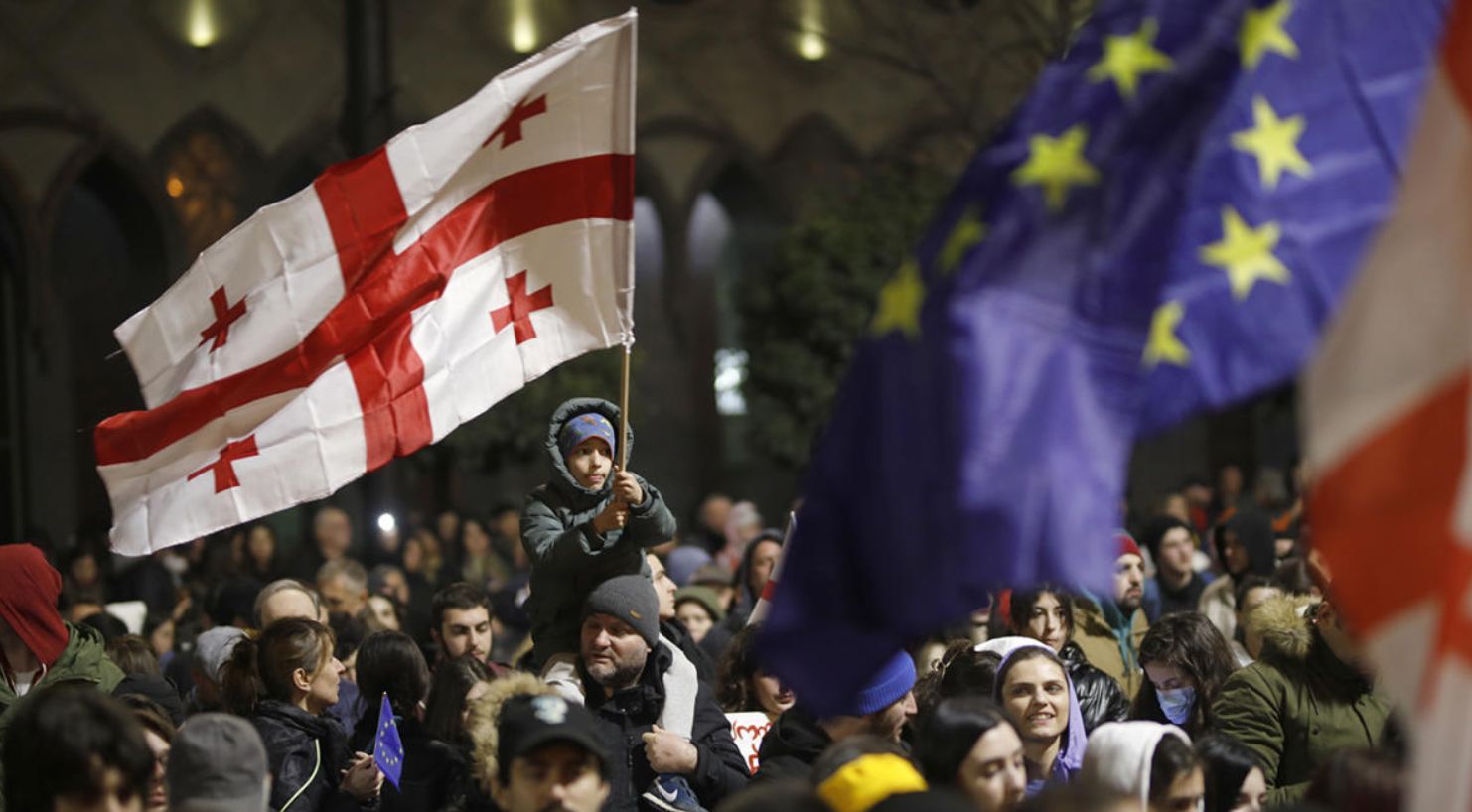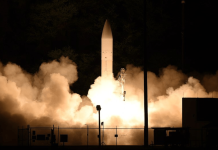On November 3, Moldova will decide its path in a highly anticipated presidential runoff that could determine whether the nation continues its journey toward European integration or leans towards Moscow.
In the upcoming round, Maia Sandu, Moldova’s pro-European President, is vying for a second term. Sandu, a Harvard-educated former World Bank official, has led Moldova closer to the E.U., especially since Russia’s invasion of neighboring Ukraine brought renewed urgency to her administration’s West-leaning policies.
Her opponent is Alexandr Stoianoglo, a former prosecutor general endorsed by the pro-Russian Party of Socialists. Should other Kremlin-friendly parties support him, the second round could be highly competitive.
The first round of voting on October 20 resulted in a contested outcome. Sandu captured 42% of the vote, while Stoianoglo’s support, initially estimated at around 10%, surged to over 26% by election day.
Analysts suggest that this surprise increase in votes for Stoianoglo could reflect growing domestic opposition to Sandu’s policies amid economic challenges and potential foreign interference from Russia.
On the same day, Moldovans voted in a referendum on adding a constitutional clause to make E.U. membership a national goal. The measure passed with only 50.46% support, reflecting a narrower margin than prior opinion polls, which had estimated about 60% backing for the E.U.
However, the election race has been contentious, with allegations of Russian interference overshadowing both rounds.
Sandu’s administration accused Moscow-linked actors of orchestrating an extensive vote-buying scheme to influence the outcome, describing it as an “unprecedented assault” on Moldovan democracy.
The scheme, reportedly launched by Russian-backed oligarch Ilan Shor, allegedly sought to sway nearly 300,000 voters — about 10% of the population — in favor of a pro-Russian candidate and against the E.U. referendum.
Sandu remarked on her narrow victory in the referendum, saying, “We fought fairly in an unfair fight — and we won.” Both Russia and Shor have denied the allegations, but officials in Moldova remain wary of potential interference in the second round.
During the final debate on October 27, Sandu labeled Stoianoglo a “Trojan Horse” of the Kremlin, suggesting that if elected, he would undermine Moldova’s sovereignty.
Stoianoglo’s supporters argue, however, that Sandu has imposed financial hardships on citizens by cutting ties with Russia, which once supplied Moldova with discounted energy.
In her first term, Sandu managed to reduce Moldova’s dependence on Russian gas, but at the cost of rising inflation and economic strain, particularly on low-income households.
Critics also question Sandu’s decision to schedule the E.U. referendum alongside the presidential vote, arguing it strategically positioned her as the only leader capable of steering Moldova toward Europe.
They say her administration has faced multiple crises, and the inflation surge, which peaked above 30%, has deepened poverty in the nation of three million.

Moldova & Georgia At A Crossroads
The election outcome holds critical implications not only for Moldova but also for the broader region, as Europe and the United States closely monitor the results.
A victory for Sandu would signal Moldova’s continued march toward the E.U., while Stoianoglo’s win could push the country towards Moscow, aligning it with other pro-Russian victories across Eastern Europe.
This political climate is further complicated by recent developments in Georgia, where the ruling Georgian Dream party, aligned with pro-Russian interests, secured 54% of the vote in parliamentary elections.
This outcome dashed the opposition’s aspirations for forming a pro-Western coalition and hindered the nation’s E.U. integration efforts.
It is evident that Western nations also had a vested interest in this election. Georgia’s pro-Western President, Salome Zourabichvili, has refused to acknowledge the election results.

Under the current Georgian constitution, the President serves as a ceremonial figurehead, while the Prime Minister holds executive authority. Legislative powers are shared between the government and the unicameral Parliament of Georgia.
Zourabichvili has expressed disbelief in the legitimacy of the election results, which allowed Prime Minister Irakli Kobakhidze’s Georgian Dream party to achieve a majority.
In the newly constituted parliament, the opposition holds 61 out of 150 seats, while Georgian Dream commands 89. While this majority exists, it is insufficient for Kobakhidze to implement the constitutional reforms he had promised during the campaign.
President Zourabichvili has publicly denounced what she views as election manipulation by the pro-Moscow Georgian Dream, claiming such actions obstruct Georgia’s European integration and alleging Russian interference without providing specific evidence.
At a protest rally in front of the Presidential palace on the evening of October 28, she emphasized that European integration is the only viable option.
Veteran journalist Prakash Nanda argued, “Terming the election results as ” total falsification,” she [Salome Zourabichvili] asked the opposition parties not to take their parliamentary seats and to ensure the installation of a pro-Western government with the help of the U.S. and European Union.”
Nanda added, “In other words, Georgia’s President, the ceremonial head of the country, wants that the mob in the streets of Tbilisi, not the people from all parts of the country through ballot boxes, must dictate the formation of the next government, which, again, has to be pro-West and prepared to fight Russia.”
Meanwhile, U.S. President Joe Biden expressed his concerns about what he described as the country’s decline in democratic standards, aligning with the European Union’s worries that prompted the suspension of Georgia’s membership bid and raised serious concerns about recent developments.
That being said, the electoral situations in Moldova and Georgia illustrate the direct or indirect interference by both the West and Russia as they vie for their respective interests in these countries.
- Contact the author at ashishmichel(at)gmail.com
- Follow EurAsian Times on Google News




